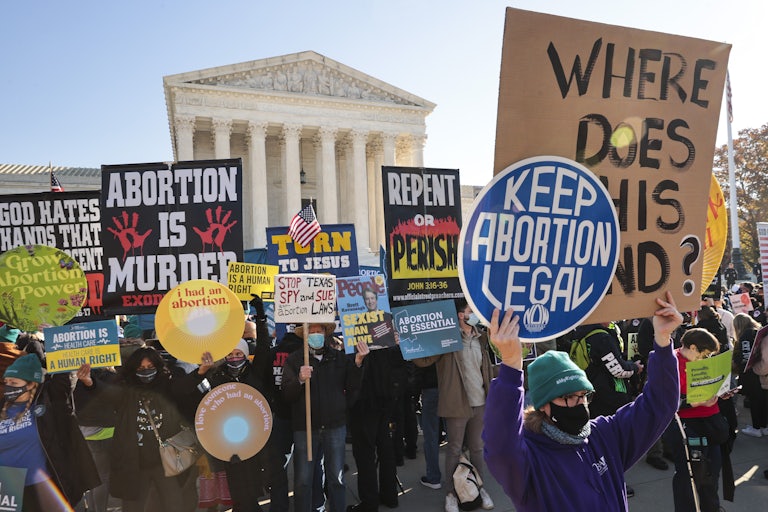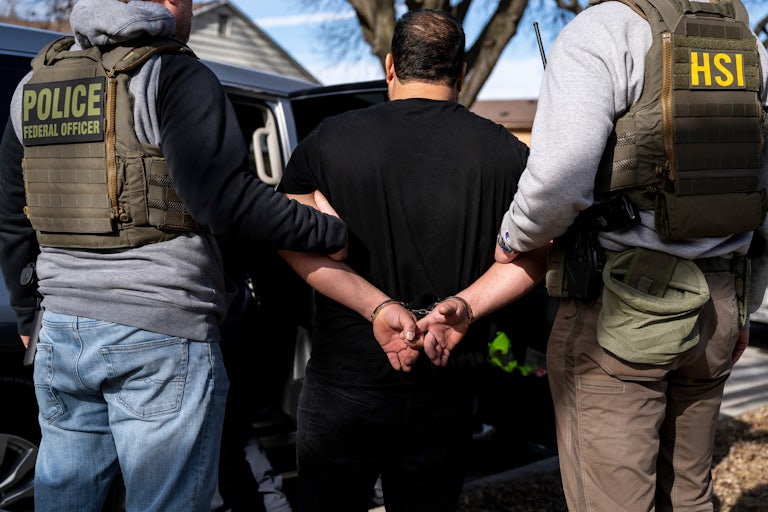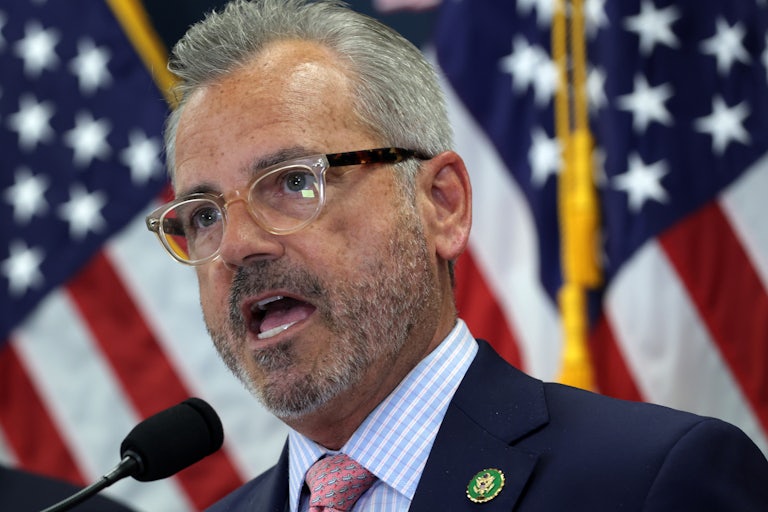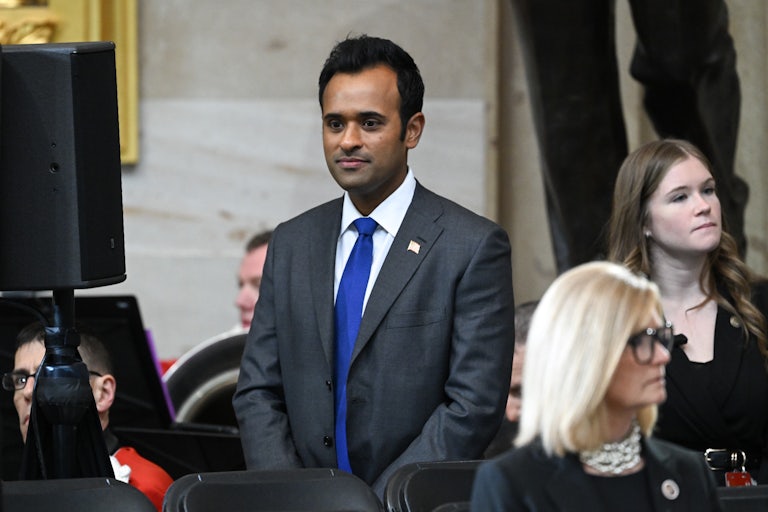A Sinister Montana Bill Would Charge Women With “Abortion Trafficking”
If the bill is signed into law, women traveling out of state for abortions would face up to five years in prison.

Montana women could soon be unable to receive abortion care anywhere.
A new bill sponsored by state Representative Kerri Seekins-Crowe would ban “abortion trafficking” across state lines, effectively criminalizing anyone who receives or helps someone receive the medical procedure, even if they access it outside of Montana.
“A person commits the offense of abortion trafficking if the person purposely or knowingly transports or aids or assists another person in transporting an unborn child that is currently located in this state either to a location within this state or to a location outside of this state with the intent to obtain an abortion that is illegal in this state,” reads the text of Montana House Bill 609. Conviction could come with a sentence of up to five years in prison.
The bill seeks to restrict a woman’s ability to travel—similar to how Republicans have pushed to restrict minors’ ability to leave their state for gender-affirming care. It’s also unclear how local authorities would be able to identify people who had received abortions outside of the state, raising questions of whether state lawmakers would also push for a registry of pregnant Montanans.
“Had a bill like this been law at the time, I wouldn’t just be a grieving mother, I’d be a felon,” Anne Angus, a 35-year-old Montanan who received an abortion at 24 weeks in 2022, after her fetus was diagnosed with a fatal condition, told Jessica Valenti. Under H.B. 609, she would be in prison. “All for fleeing the state to give my son the compassion and dignity he deserved,” Angus said.
Democrats are currently mobilizing against the bill. “Beyond attacking Montana voters who voted decisively to protect abortion rights, state Republicans are once again abusing state legislatures as a testing ground for their most extreme policies,” Democratic Legislative Campaign Committee communications director Lauren Chou told The New Republic. “Voters across the country are watching as Republicans take an ax to their rights, and they won’t forget this when it’s time to head to the ballot box.”
In November, Montanans voted to enshrine abortion protections in their state constitution, but that hasn’t prevented conservative state lawmakers from continuing to chip away at the protection. Earlier this month, Republicans in the state legislature advanced House Bill 316, a fetal personhood bill that would confer constitutional rights to a fetus from the moment of its conception. The bill would also effectively nix in vitro fertilization access in the state and undermine abortion access, according to the Daily Montanan, though it will require the approval of two-thirds of the state legislature before being advanced to the ballot for Montanans to vote on.
But Montana’s recent anti-abortion legislation is just more moves in a multipronged attack on reproductive rights happening nationwide, despite the fact that the vast majority of Americans do not support such restrictions.
In Missouri, a similar effort to track women is underway. Missouri House Bill 807, called the “Save MO Babies Act,” is intended to target people “at risk for seeking abortion services” and to “reduce the number of preventable abortions.” If passed, the registry would start on July 1, 2026, and would be managed by the Maternal and Child Services division of the state’s Department of Social Services, according to the bill text. But the bill does not specify the scope and scale of such a registry, or exactly how “at risk” individuals would be identified.
Lacking access to abortion care has actually made pregnancies drastically less safe. In Texas, where abortion hasn’t been permitted despite the legislature’s medical emergency clause, sepsis rates have skyrocketed by as much as 50 percent for women who lost their pregnancies during the second trimester, according to an investigative analysis published last week by ProPublica.
That’s left women in the state, like Kate Cox, with few other options than to flee Texas for emergency care—a reality that could be stripped from the table for women in Montana.








